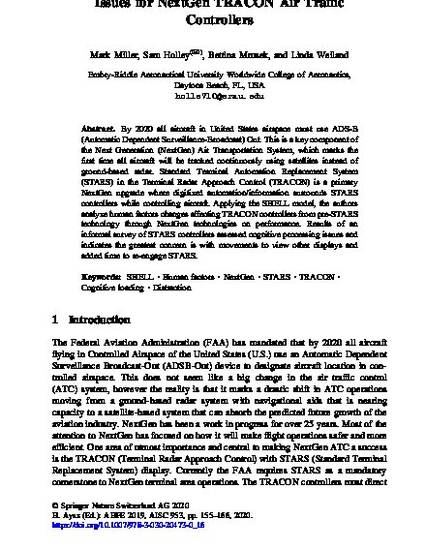
By 2020 all aircraft in United States airspace must use ADS-B (Automatic Dependent Surveillance-Broadcast) Out. This is a key component of the Next Generation (NextGen) Air Transportation System, which marks the first time all aircraft will be tracked continuously using satellites instead of ground-based radar. Standard Terminal Automation Replacement System (STARS) in the Terminal Radar Approach Control (TRACON) is a primary NextGen upgrade where digitized automation/information surrounds STARS controllers while controlling aircraft. Applying the SHELL model, the authors analyze human factors changes affecting TRACON controllers from pre-STARS technology through NextGen technologies on performance. Results of an informal survey of STARS controllers assessed cognitive processing issues and indicates the greatest concern is with movements to view other displays and added time to re-engage STARS.
Available at: http://works.bepress.com/linda-weiland/3/
